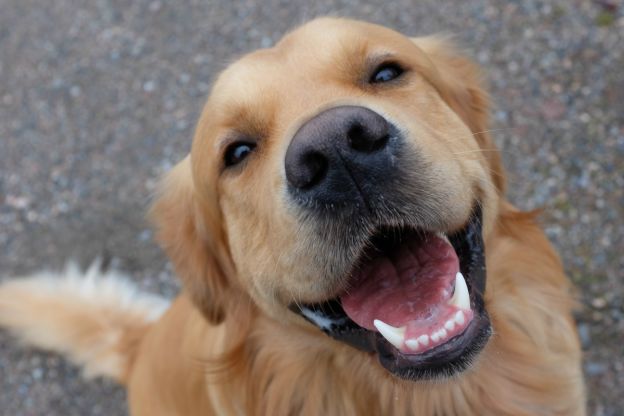
I’m not a dog owner. As I frequently quip when asked if I have a dog, “I don’t have a dog, I have grandchildren.” On my daily walk around town I do encounter many dog owners; in some cases, the dogs are so large and the owners so small that it appears the dogs are taking their owners for a walk. This is particularly true of Huskies on a leash. Whatever case, the other thing I notice are dog owners talking to their dogs.
I’ve never heard a dog owner speaking “dog” to their best friend, it’s always English. I suppose scientists conducting animal studies must have figured out the meaning of “dog-talk” by now, the various barks, yips, whines, howls, growls and so forth emanating from canines. Perhaps, like people, different breeds use different “languages” and an owner would have to master Corgie versus Poodle in order to “talk-dog.” Or perhaps the human larynx finds such sounds too impossible to make. Who knows? In any event, it’s English I’m hearing.
Dogs seem to recognize some verbal commands; “sit,” “stay,” “good boy,” and “lie-down,” come to mind, but I’m sure there are others. And dogs seem to know their names. Recent reports indicate cats also recognize their names, but don’t care enough to show it. The serious dog trainers I know combine verbal commands with physical gestures, a sort of double-down approach not unlike the way parents point a finger down the hall when telling toddlers to “go to your room.” The gestural approach makes sense to me; dogs, like other social pack animals, use gesture and posture frequently to communicate. The baring of sharp canine teeth always gets my attention.
It’s the baby talk I hear that amuses me most. To be sure, dogs can be childlike, eager, and friendly, so it’s not difficult to understand why people feel affection for them. And unlike people, dogs do not express political opinions, which in and of itself is very attractive. That said, however, dogs are not children and will never grow up. When I hear people saying things like, “what are you doing, sweetie?” or “aren’t you the cutest puppy in the world?” I wonder if people expect their dog to answer.
When I’ve asked about it, dog owners tell me it’s not so much the words that matter but their tone and manner of speaking. They say their dogs can tell when their owners are pleased and when they’re not by how they say the words. That sounds logical to me, since dogs do have brains and being social, pack animals are sensitive to nuances of expression, loyalty and power. Growls, yips and physical gestures work well enough in dog society to sustain stable, thriving relationships.
The bonds formed between human beings and dogs are powerful and they are ancient animal companions. From cave paintings to Grecian myths, dogs and people have a storied history. At times, though, I’m not sure if its the people in charge, or the dogs. This occurs to me when I see someone walking while holding a small dog hugged close and cradled like a baby. That dog’s got a great racket going.
Dogs can be a lot of trouble, I suppose, but in comparison to people, dogs are easy. And when it comes to offering unconditional love, dogs win hands down. Except, that is, for grandchildren.